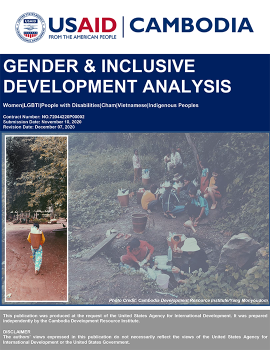
Gender and Inclusive Development Analysis
This study reports the results of a comprehensive gender and inclusive development analysis (GIDA) to inform the United States Agency for International Development (USAID)‟s workplans regarding Cambodia‟s Country Development Cooperation Strategy (CDCS) for 2020– 2025. The GIDA uses a combination of quantitative and qualitative methods to identify m...
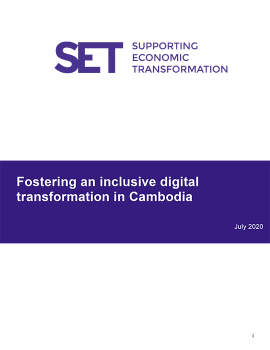
Fostering an Inclusive Digital Transformation in Cambodia
Digitalisation in Cambodia is rapidly taking place but has had different results and provided varying opportunities across varying economic sectors. While digitalisation assists in advancing economic and social terms in Cambodia, public and private sectors, as well as different economic classes are receiving unequal benefits from improvements in di...
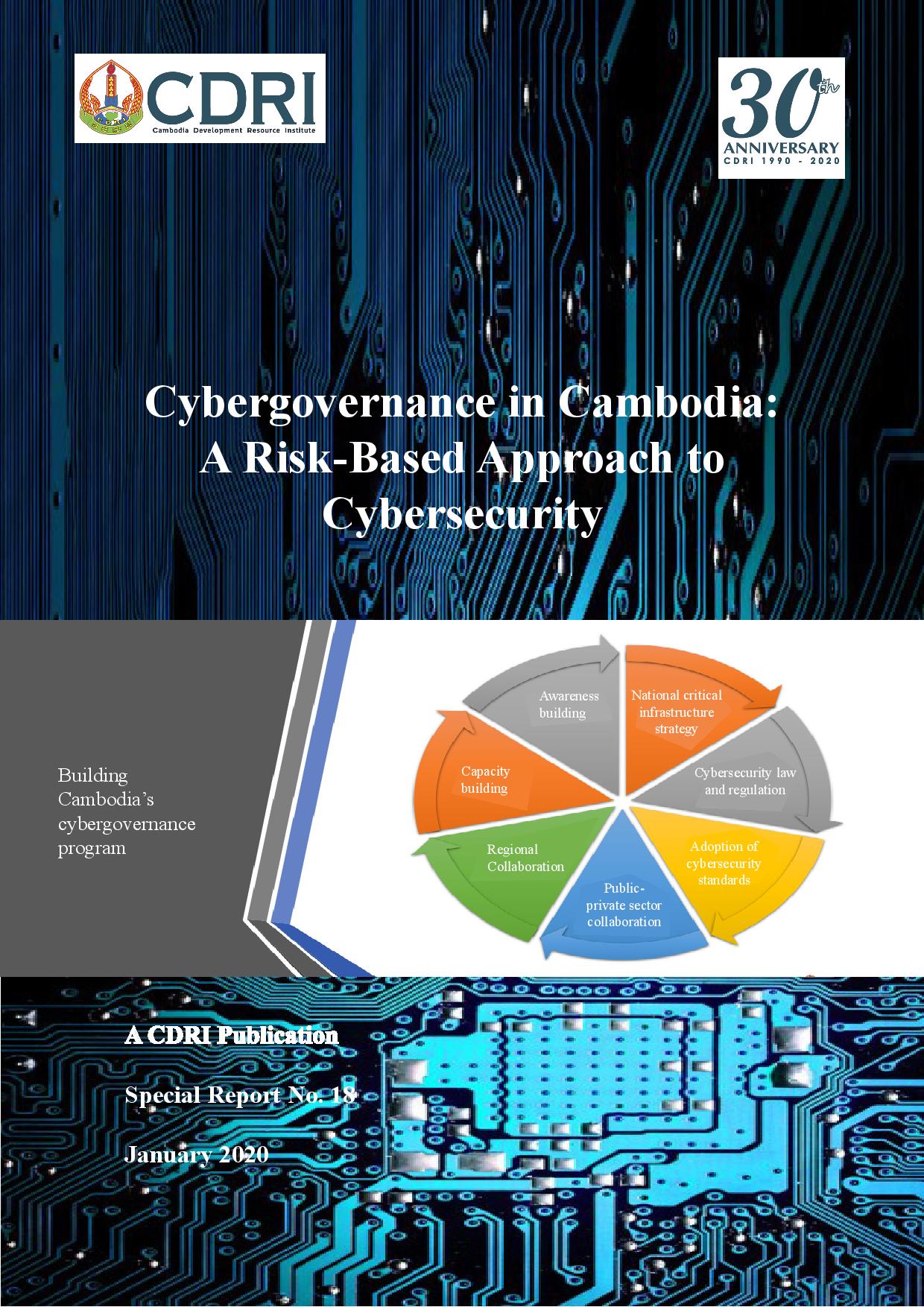
Cybergovernance in Cambodia: A Risk-Based Approach to Cybersecurity
To understand cyber risk in Cambodia and equip policy leaders to oversee it, this paper assesses the successes and challenges of current cyber risk management efforts in Cambodia and throughout the Association of Southeast Asian Nations (ASEAN) region. The findings suggest that there is a large gap between the rapid implementation of new technologi...
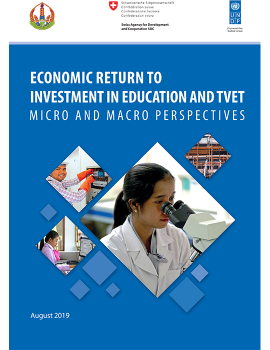
Economic Return to Investment in Education and TVET: Micro and Marco Perspectives
This study is a part of the UN Joint Programme through which the UNDP seeks to examine the relationship between the economic/monetary returns of investments in education and technical vocational education and training (TVET) at individual, household and national levels. The overall objectives of the study are (1) to estimate the rate of return at t...
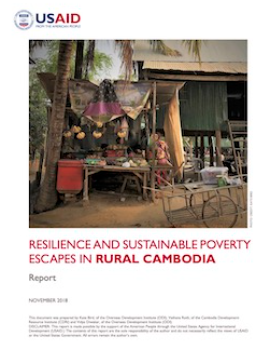
Resilience and sustained poverty escapes in Rural Cambodia
The focus of this report is on household poverty escapes and what explains why some households escape poverty and remain out of poverty (sustainable poverty escape, or resilience), while other households escape poverty only to fall back into poverty (transitory poverty escape) and still other descend into poverty for the first time (impoverishment)...
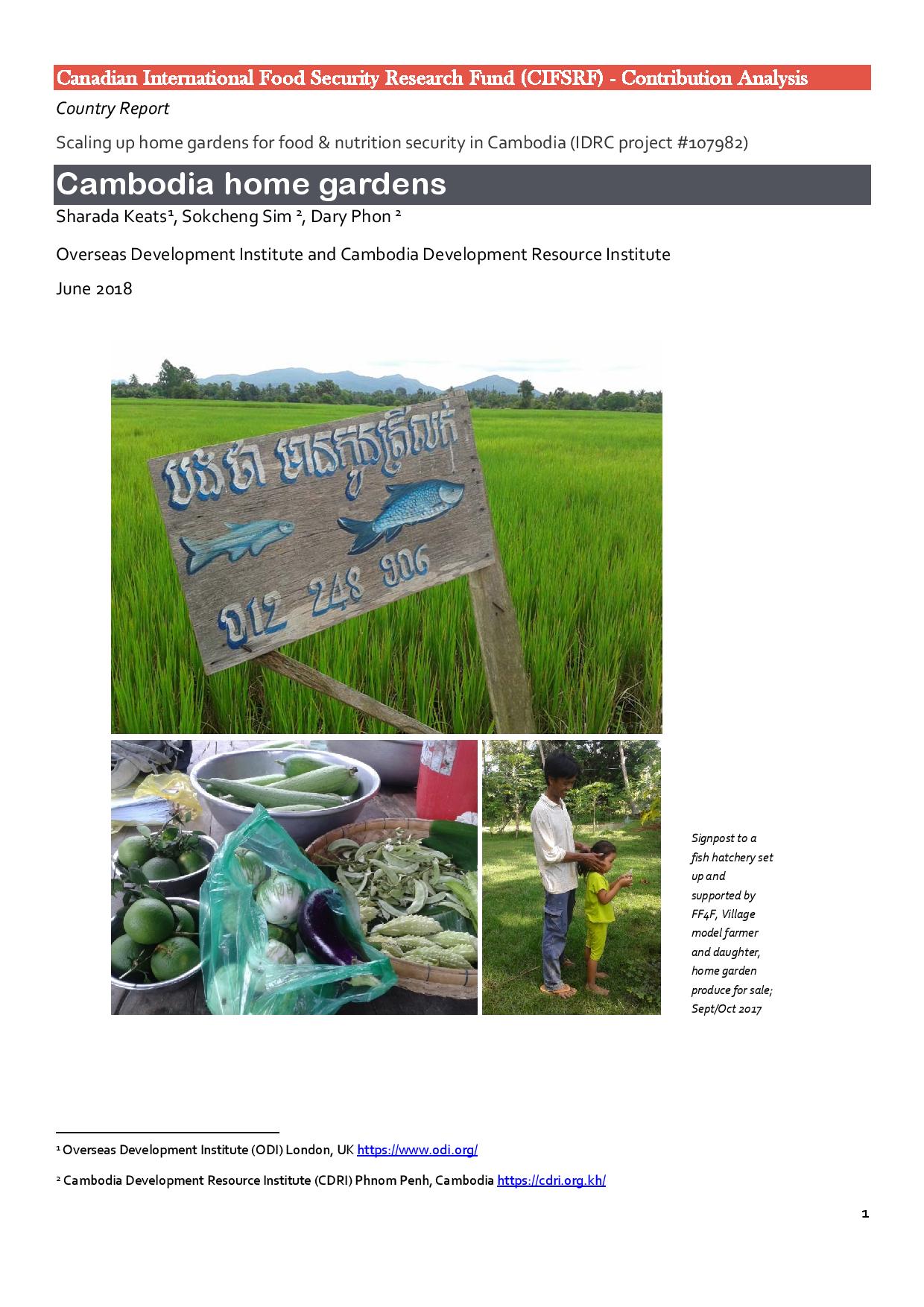
Scaling up Home Gardens for Food & Nutrition Security in Cambodia
This report reviews a project funded under the research program called “Scale up of Homestead Food Production for Improved Nutrition in Cambodia”, also known as “Family Farms for the Future (FF4F)”. The project tries to capture FF4F’s immediate and potential contribution to food security. FF4F aims to help three main groups: large-scale producers o...
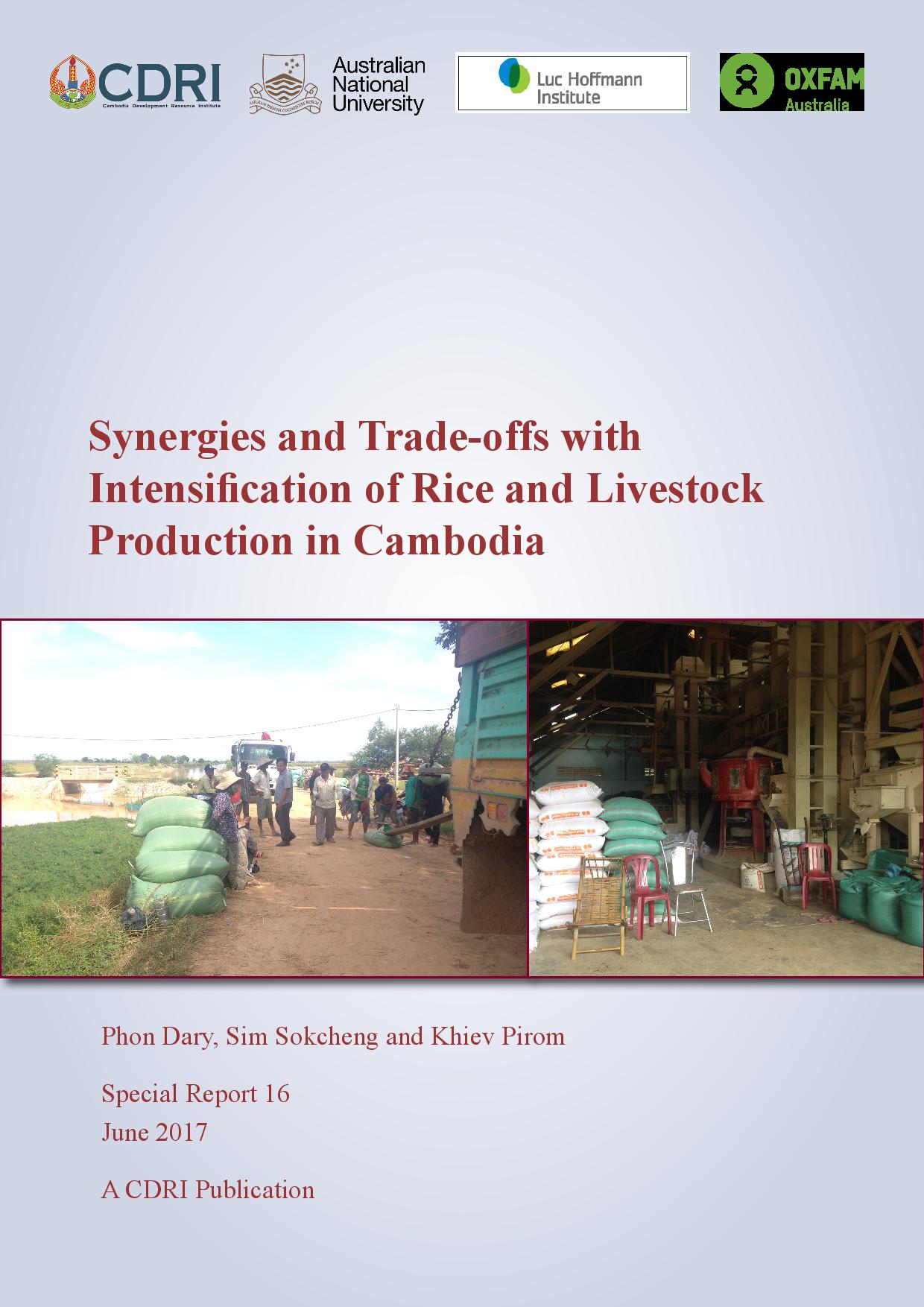
Synergies and Trade-offs with Intensification of Rice and Livestock Production in Cambodia
This study examines the benefits, risks and costs of changing from flood recession to intensive irrigated agriculture in Cambodia. Methods used include food supply calculation, nutritional supply estimation, potential production area projection, water use estimation, and energy consumption estimation. Three scenarios were designed to model current...
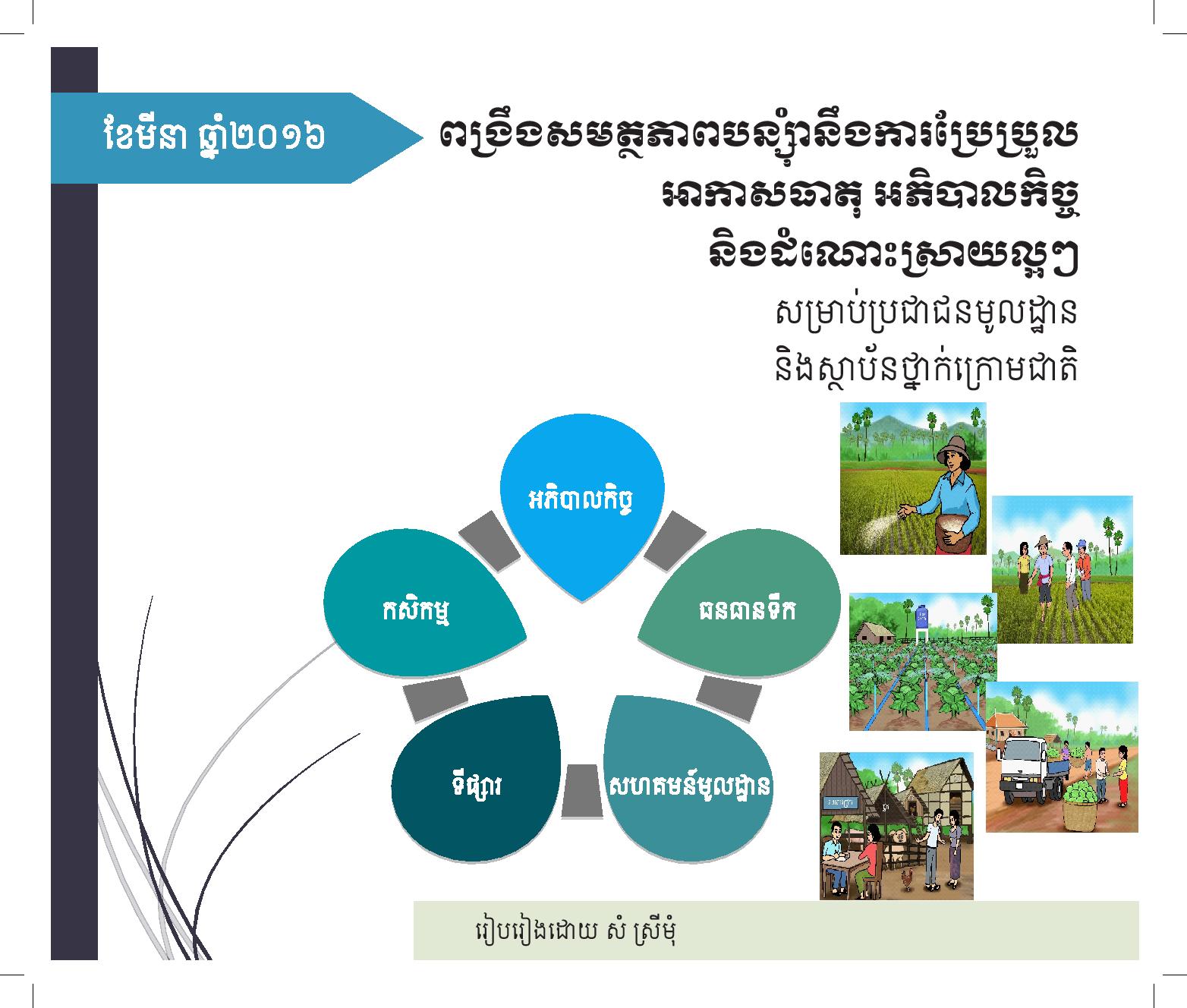
Enhancing Adaptive Capacity to Climate Change
This handbook is designed for small farmers and local smallholders. Using understandable terms and clear, attractive pictures, it sets out some of the best farming practices for enhancing adaptive capacity and resilience to climate change. It explains:How climate change and human activities affect water resources and local livelihoods;What can be d...
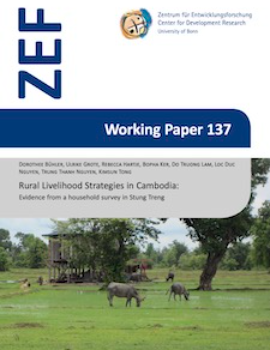
Rural Livelihood Strategies in Cambodia: Evidence from a household survey in Stung Treng
The overall objective of this discussion paper is to advance the knowledge on rural livelihoods in Stung Treng, Cambodia. In a cluster analysis, five clusters with very different livelihood strategies are identified based on a sample of 600 rural households. Despite the fact that nearly all households are engaged in some form of subsistence farming...
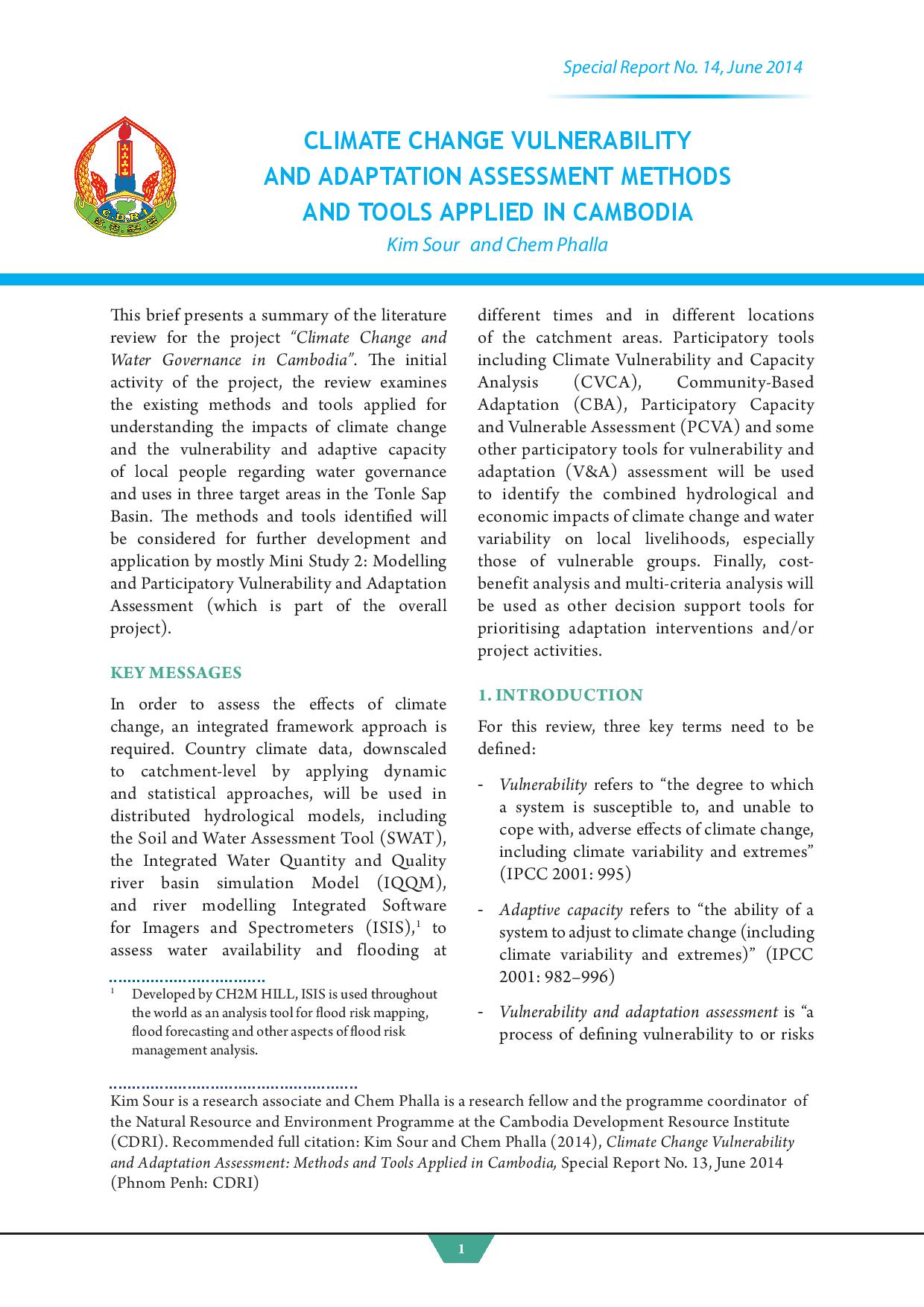
Climate Change Vulnerability and Adaptation Assessment Methods and Tools Applied in Cambodia
This short paper examines existing methods and tools used to understand climate change impacts, local vulnerabilities and adaptive capacities, with a focus on water governance and water use, in three target areas in the Tonle Sap Basin. Assessment of the effects of climate change requires an integrated framework approach. That framework is made up...
